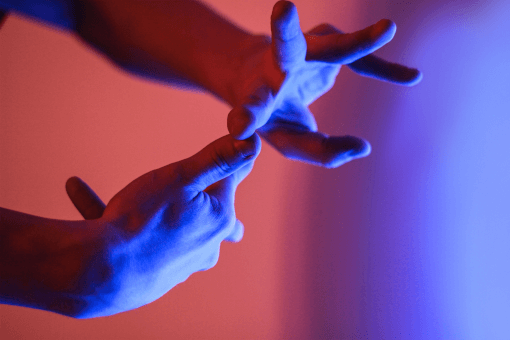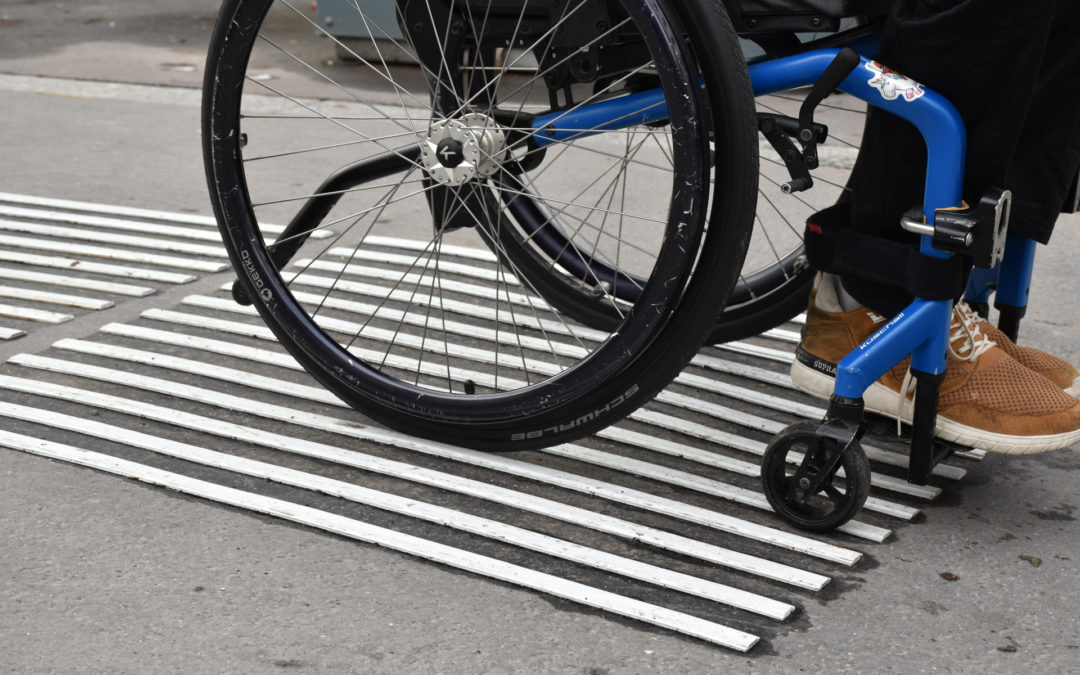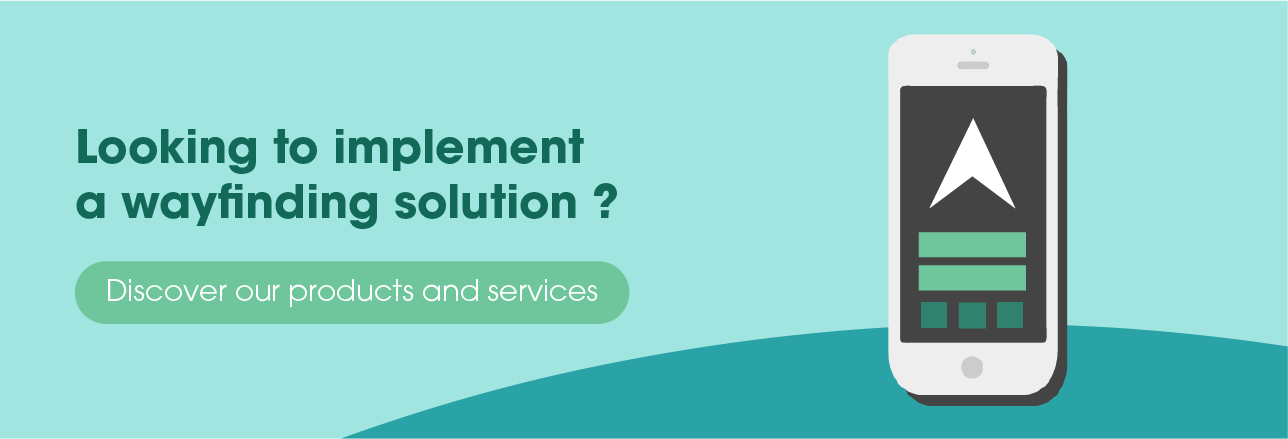
7 popular beliefs about psychiatric disability
- Psychiatric disability does not affect me
- Intellectual disability and psychiatric disability are the same thing
- People who live with a psychiatric disability are unable to work
- A mental illness is for life, it cannot be cured
- The only way to treat people with psychiatric disabilities is to medicate them
- Schizophrenics are violent and dangerous. They often kill people
- There are no effective measures for promoting accessibility among people who have a psychiatric disability
Psychiatric disability, or mental illness, has long been associated with insanity. It very often (and wrongly) prompts an irrational fear in us. Like all other disabilities, it has many forms and a person can lead an active life with appropriate support.
1. Psychiatric disability does not affect me
Unfortunately, no family is safe from mental health issues, whether depression, anxiety, addiction, schizophrenia, anorexia or other. The WHO estimates that these disorders affect one in four people and that mental illness now represents the most common disability in the world.
2. Intellectual disability and psychiatric disability are the same thing
Even though the results of these two types of disabilities sometimes resemble each other, it is important to distinguish between them.
Intellectual disability is the result of a cognitive impairment that affects a person’s ability to learn, think and conceptualize. Psychiatric disability is the result of disabling psychiatric disorders such as schizophrenia, major depression, bipolar disorder, anxiety disorders and personality disorders. It is also often called “mental illness” but this can increase confusion between the two disabilities. In any case, psychiatric disability does not affect a person’s intellect. It simply makes it more difficult for them to use their intellectual abilities in certain circumstances or in a particular emotional state.
8 Clichés About Intellectual Disability
3. People who live with a psychiatric disability are unable to work
One of the main difficulties facing people affected by a psychiatric disability is keeping their job. The unemployment rate among people recognized as disabled workers is twice that of the general population. Nevertheless, with personalized support (rearrangement of work schedule and environment), they are more than capable of working and contributing their skills. A job can even act as an effective way of preventing their disorder from worsening.
4. A mental illness is for life, it cannot be cured
Studies show that the majority of people with mental health problems improve or even recover completely. They can then participate fully once again in family life, society and work, even if some symptoms linger on.
5. The only way to treat a person with a psychiatric disability is to commit them or medicate them
The vast majority of psychiatric patients are treated as outpatients and are never hospitalized. Psychotherapy, physiotherapy, social rehabilitation courses and support groups are just some of today’s alternatives to medication and hospitalization.
6. Schizophrenics are violent and dangerous. They often kill people
The statistics speak for themselves: less than 1% of crimes are committed by people suffering a serious mental illness. There is no connection between a psychiatric disorder and the committing of a crime.
7. There are no effective measures for promoting accessibility among people who have a psychiatric disability
Since anxiety is one of the most common symptoms of a psychiatric disability, anything that helps create a reassuring atmosphere is welcome. We can also add:
⊗ Hiring patient, respectful staff who are trained in receiving people with disabilities;
⊗ Posting simplified, illustrated signs with easy-to-understand words, colors, symbols and icons;
⊗ Using visually different carpets or floor coverings, or tactile strips to point out the main pathways;
⊗ Comforting background sound with noise-dampening coverings;
⊗ Indoor navigation apps such as Evelity: it can suit every user’s profile and provides step-by-step instructions to serenely guide people within complex venues.
Updated on January 19th, 2022/Published on May 10th, 2019
media

Less than 1% of crimes are committed by people suffering a serious mental illness. There is no connection between a psychiatric disorder and the committing of a crime.
writer

Lise Wagner
Accessibility Expert
stay updated
Get the latest news about accessibility and the Smart City.
other articles for you

Open Data Is Key to Fostering Universal Accessibility
Open data represents an opportunity for cities to reach universal accessibility. It shows the missing links of the mobility chain.
Our Audio Beacons Guide the Blind and Visually Impaired at the Helsinki Subway
The Helsinky subway improved their audio signage system by installing on demand and remotely activated audio beacons.
7 Good Reasons to Install Audio Beacons at Your Public Transport Network
Audio beacons are an efficient way to provide more autonomy to blind and visually impaired people. They can easily use public transport.

Will Remote Activation Become the Norm for Accessible Pedestrian Signals?
More and more cities like New York have been exploring remote activation to trigger accessible pedestrian signals.
share our article!
more articles

Disability Statistics in the US: Looking Beyond Figures for an Accessible and Inclusive Society
Disability Statistics in the US: Looking Beyond Figures for an Accessible and Inclusive Society Around 61 million adults in the United States live with a disability. Diving into disability statistics in the US will help us know exactly who is concerned and what...
Our Audio Beacons Guide the Blind and Visually Impaired at the Helsinki Subway
Our Audio Beacons Guide the Blind and Visually Impaired at the Helsinki SubwayOur audio beacons equip the new line of the Helsinki subway in Finland. They help blind and visually impaired people locate the points of interest of a station. For users with visual...

Will Remote Activation Become the Norm for Accessible Pedestrian Signals?
Will Remote Activation Become the Norm for Accessible Pedestrian Signals?Without pushbutton, there are no accessible pedestrian signals. That’s how APS work in the U.S. But more and more cities have been exploring remote activation like New York City. The Department...

Hearing Impaired People: a Multitude of Profiles for Different Needs
Hearing Impaired People: a Multitude of Profiles for Different Needs Did you know that hearing impaired people have several profiles and that the way they identify themselves is important? You may be familiar with deaf and hard of hearing people but for each of...
NEVER miss the latest news about the Smart City.
Sign up now for our newsletter.
Unsubscribe in one click. The information collected is confidential and kept safe.
powered by okeenea
The French leading company
on the accessibility market.
For more than 25 years, we have been developing architectural access solutions for buildings and streets. Everyday, we rethink today’s cities to transform them in smart cities accessible to everyone.
By creating solutions ever more tailored to the needs of people with disabilities, we push the limits, constantly improve the urban life and make the cities more enjoyable for the growing majority.


